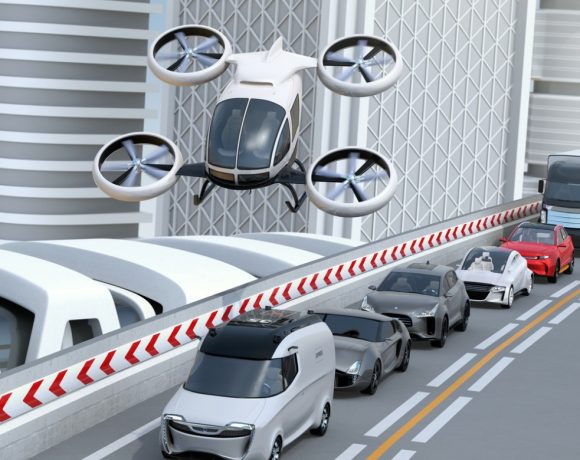- Singapore is a land scarce nation with a high population density. To tackle this challenge, innovations in transport and mobility is crucial.
- Singapore’s Road Traffic Act (amended in 2018) recognises that motor vehicles don’t require human drivers, making it the world’s top country to embrace autonomous driving.
- The future of autonomous vehicles is already established in Singapore with the likes of nuTonomy (a self-driving car company that focuses on developing software for AVs and mobile robots), Delphi, Beeline and others. It is understood that along with cars, the government is also looking at speeding up the launch of autonomous buses.
Singapore has big aspirations to be a leading smart, sustainable and liveable city. To achieve these goals, the government aims to develop an innovative society and will prioritise research and investments in areas such as new urban mobility solutions, liveable spaces, next generation smart grid, among others, with the possibility of exporting these innovative solutions and technologies to the Asian region and beyond.
Singapore is a land scarce nation with a high population density. To tackle this challenge, innovation in transport and mobility is crucial, with a growing emphasis on shared mobility.
In February 2017, the Ministry of Transport introduced a series of Autonomous Vehicle Rules, or ‘AV Rules’, for prospective trials of self-driving vehicles. With the amendment to the Road Traffic Act in 2018, the Singaporean law currently recognises that motor vehicles don’t require human drivers, making it the world’s top country to embrace autonomous driving. In 2019, Ng Chee Meng, Singapore’s former second minister for transport, reiterated Singapore’s support to AVs during a speech at the Committee of Supply Debate. As stated by Ng Chee Meng, “the focus on self-driving technology is important in a big way because it has the potential to dramatically improve public transport. Initiatives are underway to develop self-driving buses and to explore how the technology can be applied for use in freight transport and utility vehicles.”
According to Tanvi Maheshwari, an urban designer and researcher with Future Cities Laboratory (FCL) at the Singapore-ETH Centre, AVs could revolutionise cities—if they are managed and incorporated into a larger urban mobility strategy.
The major potential benefits of AVs in Singapore include the following:
Alleviate congestion: With the third highest population density in the world, the city-state would benefit from AVs through more efficient driving and traffic management, and by doing so, alleviating the congestion on the streets and associated air and noise pollution.
Space savings: As AVs are expected to require less physical space and drive with greater precision than existing vehicles, space efficiency would be one of the major benefits. Currently, Singapore uses 12% of its land on transport infrastructure. AVs could potentially free up valuable road and parking space, which could be reclaimed for other uses or environmentally friendly alternatives, such as more walking or cycling lanes to encourage active mobility.
Safety: Although vehicle automation technology at present is far from ready for mass implementation on all road types, in the long term, AVs are expected to increase road safety, since human error is believed to be the cause of over 90% of traffic accidents.
Productivity: Finally, AVs could bring more productivity through efficient use of in-vehicle time. Automated vehicles could serve as office on the go, or bring services to underserved neighbourhoods, such as through a mobile AV dispensary, or library.
At the same time, vehicle automation can also lead to negative consequences such as induced demand, increased travel, greater hindrance to pedestrian movement and breach of privacy and cybersecurity. Tanvi argues that AVs have the potential to support a more people-friendly urban environment, if technological development is complemented with the right urban planning and policy interventions. At the time, the future of urban mobility is not certain, but planning interventions can nudge these developments in the right direction.
Cities have a critical role to play in making sure that we do not end up repeating the same mistakes that we made when automobiles were first introduced. Implementing AV technology without planning, design and the proper regulatory frameworks in place would not bring the desired benefits. It is very important for cities to proactively plan and envision how they want to develop the AVs sector: it could be private vehicles, shared vehicles or public buses.
Tanvi is working together with her colleagues Sergio Ordonez and Pieter Fourie in FCL, who are developing an agile simulation tool to test how different urban configurations affects the demand for autonomous vehicles. With this tool, urban designers can get quick feedback on the resulting transportation flows, areas that are likely to be congested, the kilometres travelled, etc. Results from their simulation show that in Singapore, the benefits of shared AV would far outweigh the benefits of just vehicle automation.
The future of autonomous vehicles is already established in Singapore with the likes of nuTonomy (a self-driving car company that focuses on developing software for AVs and mobile robots), Delphi, Beeline and others. It is understood that along with cars, the government is also looking at speeding up the launch of autonomous buses. In October 2019, the Land Transport Authority (LTA) unveiled plans to transform the entire western part of Singapore into a testing ground for AVs. The expanded testbed will see more than 1,000 km of public roads opened up to the testing of such self-driving vehicles.
Given the ongoing challenges Singapore faces, such as high population density and limited land area, a combination of new technologies such as AVs and forward-thinking regulation and planning will help the country achieve its urban mobility goals.






NO COMMENT